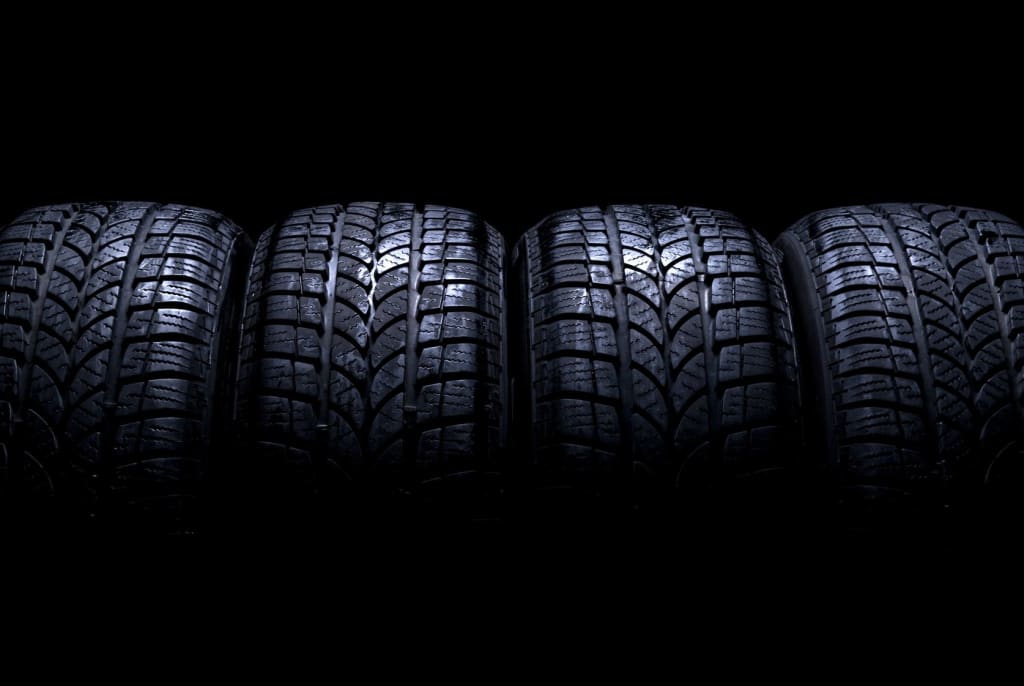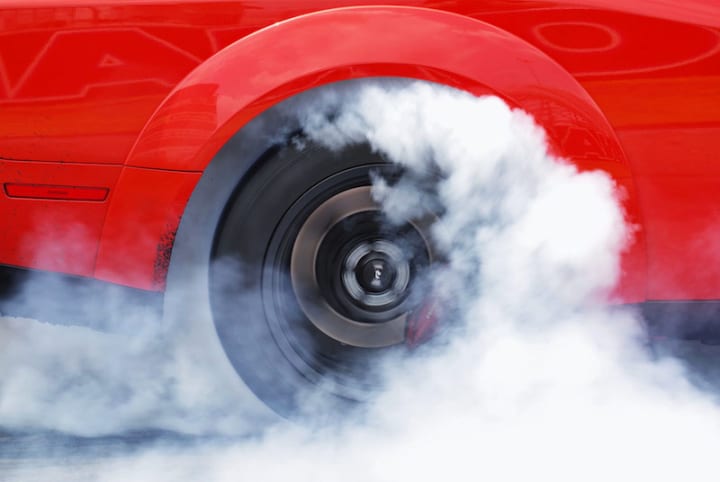How Long Should a New Set of Tires Last?
So, you bought new tires for your ride. Cool. How long should a new set of tires last, anyway?

Cars are absolutely impressive machines, aren't they? If you ask a gearhead, having the right car is one of the best ways to show that you love yourself and want to invest in a stylish ride.
High quality cars can easily turn into classics if they are well-maintained—and if you're lucky, you might end up having one of the most expensive classic cars on the market. That's why so many car fans protect their investments with regular oil changes, paint job upgrades, and fuel injectors.
As good as it is to keep care of a car's motor, people often neglect the wheels and tires. Most mechanics will tell you that people tend to drive on old tires, or beat up tires. That's dangerous, and also can affect your car's performance.
Knowing this, it's important to know how long a new set of tires should last. Here's what drivers of all types need to know.
First things first, it's important to realize that every major group of people have different ideas on how long a new set of tires should last.
There's no legitimate standard answer. Not even the National Highway Traffic Safety Administration has a guideline on how long one should wait before they change their tires. If you're looking for a guideline, it'll change depending on who you ask.
Rubber manufacturers are more worried about the car's elasticity, so they'll tell you to replace them every 10 years. Mechanics will typically tell you when the tire tread is dying out. Nissan and other car manufacturers limit decent tire life at six years.
So, if you were looking for a quick answer, sorry. Not going to happen. You need to take a lot of different factors into account when trying to figure out how long those tires should last.
For most people, figuring out how long a new set of tires should last starts with the amount of miles you drive.

The biggest reason why tires will need to be replaced is that the tread on the tires tends to be worn out from frequent driving. Knowing this, it's important to figure out when the tread on your tires will wear out.
Most people drive anywhere from 10,000 to 15,000 miles per year. Most tread wear will start to show around 45,000 to 50,000 miles. On average, this means that you will start to notice issues with your car's tires within three to four years.
That being said, you still will have some time. If you are an average driver, you should expect to have your tires last around four to six years before they have to be replaced.
The more you drive, the faster your tire tread will wear. So, if you have a long commute or crazy driving amounts, you should expect your tires to be replaced relatively regularly compared to others.
Obviously, this doesn't take into account reckless driving.
We all have that one friend who will roar down the highway at 100 miles per hour and do ridiculously sharp turns. Unsurprisingly, this kind of driving style can and will reduce tire life significantly.
Depending on how bad they are with their driving, you might expect their tires to last a total of three years. People who do donuts and burnouts on a regular basis, though, could see tires destroyed within a year or less.
Maintenance also can play a huge factor.

From a physics standpoint, it makes sense that tires that remain on the same wheel will have more wear in some places than others. This is especially true with the sides of the tire, which can make for some pretty ugly blowouts.
Good tire maintenance is crucial if you want to make sure that the tires you have will last as long as humanly possible. Too few people seem to understand this, though.
You can't ask how long that new set of tires should last, wear out your tires by not maintaining them, and then complain that you didn't get them to last long. It's not fair to the tire manufacturer, and it's also not fair to your expectations to do so.
Regular tire rotations, adding air to keep up tire pressures, and also monitoring your tires' air levels can help extend your tires' lifespan wonderfully. It also will help you feel more surefooted on the road.
Cautious and slow drivers will be more likely to keep their tread for longer periods of time.
Gentle car use is a great way to extend your tire life. Careful, gentle drivers will be happy to hear that their new set of tires should last longer. With an average driver, this can add as much as a year or two onto the tire's lifespan.
If you want to extend your tire life, use brakes gently and slow down your driving. You'll find a lot more use in your tire, and if you do have tread wear already, it'll lessen the damage.
Your car's frame and ball joints can also play a surprising factor.
If you recently had a car accident, make sure to check for frame damage. Frame damage, particularly in the form of having the frame slightly shifted to a side, will put uneven pressure on two tires.
A car that has frame damage will have shorter tire lifespans and may not even be drivable. In some cases, it could cause premature blowouts or even make the car lose control of itself. Either way, mechanics agree that driving a car with frame damage is not wise.
It's also worth pointing out that luxury cars tend to have shorter tire lives than others.

One of the biggest factors when trying to figure out how long that new set of tires should last is your car. Regular commuter cars tend to have tire sizes that work well for the long haul—and the same can be said as far as most trucks and vans go. The reason why is because these are cars that are designed to go for rugged journeys.
Supercars, though, will not have the same tire lifespans. With a lot of the most expensive supercars and sports cars you can buy, tires will have to be replaced every 20,000 miles or so. With monster trucks, the outlook is even more abysmal, with massive tires often only being used in a handful of shows.
Terrain will also matter.
Make no mistake about it, the bumps in your local streets can and do put wear and tear on your car. So, how long that new set of tires should last will depend on the quality of the streets around you.
The fact is, high quality streets with little to no gravel will work better with any kind of tire. So, if you can, avoid rocky roads.
Believe it or not, there is a good reason why some brands cost more than others. High quality tires from a brand that's known for workmanship can mean you will get more miles out of those tires. If you're not sure how long the tires you're buying should last, ask a professional what they think.
More often than not, a little extra investment will help you keep your tires safer for longer—and that's really what will make your road trips sparkle.
About the Creator
Buddy Brown
Detroit-born Buddy Brown is a 80s hair metal fan who loves cars, games, and sports. When he’s not drinking PBR while listening to Downtown Brown, he’s playing Grand Theft Auto or working on his El Camino.







Comments
There are no comments for this story
Be the first to respond and start the conversation.